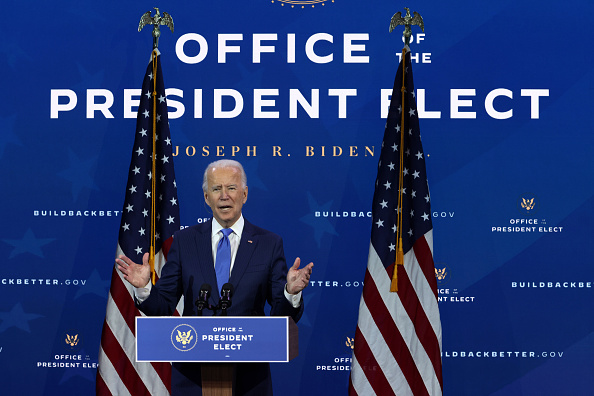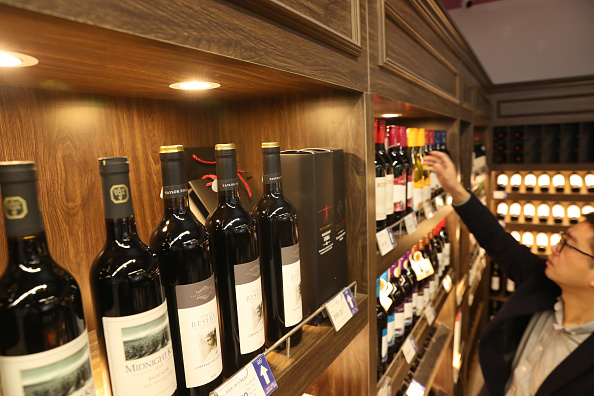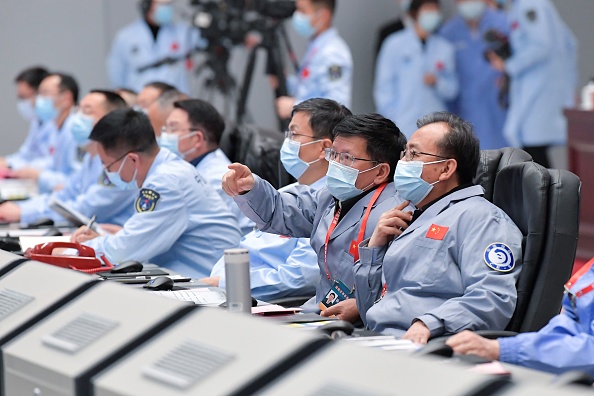
 Shifting Winds
Shifting WindsThe U.S. increased restrictions on Chinese Communist Party officials entering the country, further escalating the visa wars as the Trump administration prepares to leave office. As the restrictions tightened this week, so did stock exchange rules. The House of Representatives has passed a bill that would bar any foreign company that refuses to be audited by U.S. regulators. Though the bill makes no mention of any specific country, it is likely that it is specifically targeting Chinese companies, which have been asked by the Trump administration to be more financially transparent. "For too long, Chinese companies have disregarded U.S. reporting standards, misleading our investors. Publicly listed companies should all be held to the same standards, and this bill makes common sense changes to level the playing field," commented Senator Chris Van Hollen, a co-sponsor of the legislation, in a written statement.
Meanwhile, as Biden prepares to assume the Presidency, his policy stance towards China is also solidifying. "I'm not going to make any immediate moves, and the same applies to the tariffs," he said to Thomas Friedman during an interview with The New York Times. The goal is to "develop a coherent strategy," which Trump has failed to do, according to the President-elect. Biden's recent nomination of former Federal Reserve Chair Janet Yellen as Treasury Secretary may also signal a change in Washington-Beijing relations, as experts expect the former Fed chair to take a less inflammatory position than the current administration. "There are some valid trade issues with China, and perhaps with Europe," Yellen said in 2018 at a Credit Suisse conference, "but we've always approached dealing with these issues in an orderly way respective of WTO principles and long-established principles of trade." Read more in How Does China Fit into Biden's Foreign Policy Framework? from Richard Weitz, Senior Fellow at the Hudson Institute.
 Fermenting Tariffs
Fermenting TariffsChina levied punitive tariffs on Australian wine this week, marking yet another uptick in already rocky tensions between Canberra and Beijing. The tariff, which targets up to 212% of Australian wine imports, followed an August investigation brought on by the China Alcoholic Drinks Association, which accused Australia of selling wine below fair prices and stymying China's own wine industry. "The ministry is in strict accordance with relevant laws when conducting case filing and investigation, and adopted relevant measures to fully protect the legal rights of all interested parties," according to commerce ministry spokesman Gao Feng.
In response, politicians from around the world, including Republican Senator Ted Yoho of Utah, voiced support for Canberra in a video posted by the Inter-Parliamentary Alliance on China (IPAC), calling on China to abandon the tax and for wine drinkers around the world to support the industry in Australia.
The wine tariff follows a lengthy list of punitive tariffs China has placed on Australia, including beef, barely, and certain mineral ores. China is Australia's biggest export market and, as the Australian economy begins to recover from its pandemic-induced recession, China has the potential to put significant pressure on its neighbor's economy.
 Historic Landing
Historic LandingIn another feat for China's space program, the Chang'e 5 lunar probe departed the surface of the moon with around 3 pounds of lunar dust and sediment in tow. The Chang'e 5 probe landed on the near-side of the moon earlier this week, marking the first lunar-sample mission in 4 decades. The probe left Earth on November 24, taking off from the southern Chinese province of Hainan. Almost a year ago, on Jan 3, 2019, China's Chang'e-4 made a historic landing on the dark side of the moon. For more on China's lunar ambitions and global space cooperation, read Looking at Earth from Space from Philip Cunningham, independent analyst based in New York.
Prepared by China-US Focus editorial teams in Hong Kong and New York, this weekly newsletter offers you snap shots of latest trends and developments emerging from China every week, while adding a dose of historical perspective.
- 2020-11-21 Multilateralism on the Move
- 2020-11-14 Staying Tough
- 2020-11-07 Battleground Ballots
- 2020-10-30 Knock Knock
- 2020-10-24 Looking Back and Moving Forward
- 2020-10-16 COVID Cluster
- 2020-10-10 Election Looming
- 2020-10-03 Golden Week Kicks Off
- 2020-09-26 Virtual Diplomacy
- 2020-09-18 Digital Domain
- 2020-09-12 Reframing the Ground Rules
- 2020-09-05 Reciprocity in Action
- 2020-08-29 Who’s Tougher on China?
- 2020-08-22 To Talk, Or Not To Talk
- 2020-08-15 Domestic Circulation
- 2020-08-07 Fraying Relations
- 2020-08-01 Turning Tides
- 2020-07-24 Up in Smoke
- 2020-07-17 Status Stripped
- 2020-07-10 A Historic Moment